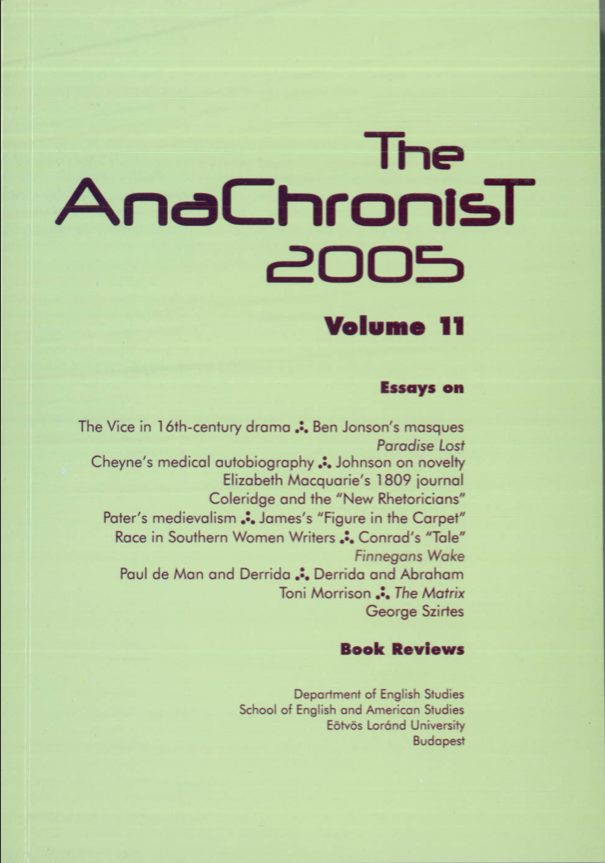'The Tale'
A Self-conscious Fictional Artifice
DOI:
https://doi.org/10.53720/SUXI8546Abstract
This paper presents a narratological reading of Joseph Conrad's last short story, "The Tale." Its aims are twofold. First, relying on Gérard Genette's narrative theory, it argues that "The Tale" is a text that thematises its own fictionality. Secondly, the present study is understood as a critical test of Genette's system, a test that should highlight some of its fortes and deficiencies. In accordance with the method used here, the analysis focuses on the intricate web of tales observable in the text, the main character's act of narration, the problem of ambiguity and interpretation, as well as how the general theme of narration runs through "The Tale." One manifestation of the latter is that the seven tales within the text all have slightly different implications, which seem to be carried already by the generic title of the short story. Drawing on the OED definitions of the word 'tale,' I suggest that all of these implications interact in the text to foreground the problem of narration and interpretation, of telling and listening, of objectivity and subjectivity.

